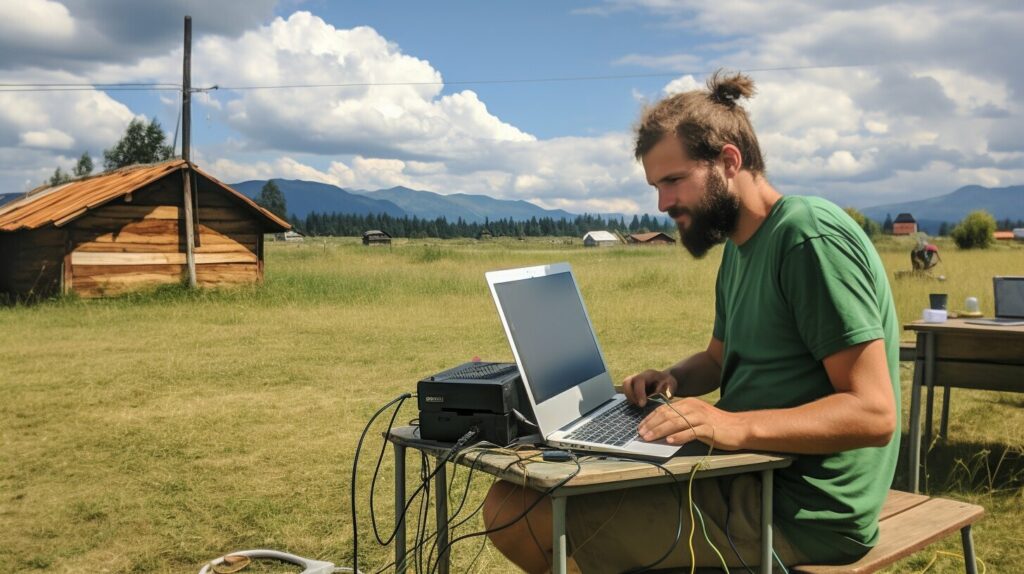Understanding Liability in Car Accident Cases in Romania – Key Facts
Understanding Liability in Car Accident Cases in Romania
When involved in a car accident case in Romania, understanding liability is crucial for determining responsibility and ensuring proper compensation for damages and injuries.
In car accident cases, liability refers to the legal responsibility of the party at fault for causing the accident.
It is important to identify the liable party as it determines who should be held accountable for the damages and injuries resulting from the accident.
Liability in car accidents can be divided into different types:
- Driver Liability: This type of liability holds the driver responsible for the accident if their actions or negligence caused the collision. Examples include reckless driving, running a red light, or driving under the influence.
- Owner Liability: Vehicle owners can be held liable if they entrusted their vehicle to someone they knew or should have known to be an incompetent or reckless driver. This includes cases where the owner failed to properly maintain the vehicle, resulting in an accident.
- Manufacturer Liability: If a car accident is caused by a defect in the vehicle or its components, the manufacturer may be held liable. This type of liability is often seen in cases involving faulty brakes, airbags, or other safety-related issues.
- Government Liability: In some situations, government entities can be held liable for car accidents. This includes cases where poor road maintenance, inadequate signage, or other negligent actions on the part of government agencies contribute to the accident.
Understanding liability laws and seeking legal advice, such as consulting with a car accident lawyer, is crucial in protecting your rights and ensuring that you receive the compensation you deserve.
Proving liability in car accident cases requires collecting evidence to support your claim.
This can include accident scene photos, police reports, eyewitness statements, and expert reports.
Factors such as traffic violations, speed, vehicle conditions, driver impairment, and license compliance can all contribute to determining liability.
It is important to note that liability in car accident cases can sometimes be split among multiple parties.
In these cases, compensation may be discounted based on the percentage of liability assigned to each party.
Seeking legal advice from a car accident lawyer is essential in understanding the complex factors involved in determining liability and protecting your rights throughout the claims process.
An attorney can assist in negotiating with insurance companies and represent you in court to ensure fair settlements and adequate compensation.
Remember, understanding liability in car accident cases is key to protecting yourself and receiving the compensation you are entitled to.
 Types of Liability in Car Accident Cases
Types of Liability in Car Accident Cases
Liability in car accident cases can be attributed to various parties, including drivers, vehicle owners, manufacturers, and even government entities.
Understanding these different types of liability is crucial for individuals involved in car accidents and seeking legal recourse. Let’s take a closer look at each type:
1. Driver Liability:
One of the most common types of liability in car accident cases is driver liability. When a driver is at fault for the accident, they can be held liable for the damages and injuries caused.
This includes cases where the driver was speeding, driving recklessly, under the influence of alcohol or drugs, or violated traffic laws.
2. Owner Liability
Vehicle owners can also be held liable for accidents involving their vehicles.
If the owner negligently entrusted their vehicle to an individual who caused the accident, they may be held responsible for the resulting damages.
This could include cases where the owner knew or should have known that the person driving their vehicle was unfit or inexperienced.
3. Manufacturer Liability:
In some car accidents, liability can fall on the manufacturer of the vehicle or its components.
If a defect in the vehicle or its parts contributed to the accident or exacerbated injuries, the manufacturer may be held legally responsible.
This type of liability often involves product liability claims and requires extensive investigations and expert analysis.
4. Government Liability:
In certain cases, government entities can be held liable for car accidents.
This typically occurs when negligence on the part of a government agency or employee leads to a car accident.
Examples may include poorly maintained roads, inadequate signage, or other hazardous conditions caused by negligence or failure to implement necessary safety measures.
These types of liability can often intertwine, making it essential to seek legal representation from a Romanian car accident lawyer or law firm.
With our expertise and understanding of Romanian car accident laws, we can navigate the complexities of determining liability and advocate for our clients’ rights.
| Types of Liability | Key Points |
|---|---|
| Driver Liability | Driver at fault is responsible for damages and injuries caused by the accident. |
| Owner Liability | Vehicle owner can be held liable if they negligently entrusted their vehicle to an unfit driver. |
| Manufacturer Liability | Manufacturer may be liable if a defect in the vehicle or its parts contributed to the accident. |
| Government Liability | Government entities may be held responsible for car accidents caused by their negligence. |
 Proving Liability in Car Accident Cases
Proving Liability in Car Accident Cases
Proving liability in car accident cases requires a comprehensive collection of evidence and expert legal guidance to establish fault and ensure fair compensation.
When pursuing a personal injury claim, it’s important to gather as much supporting evidence as possible.
This includes accident scene photos, police reports, eyewitness statements, and expert reports.
These pieces of evidence can help reconstruct the events leading to the accident and establish liability.
Factors such as traffic violations, speed, vehicle conditions, driver impairment, and license compliance are essential in determining liability.
Each case is unique, and a skilled personal injury lawyer with experience in Romania car crash cases can analyze these factors to build a strong case.
Our team of Romanian Lawyers can navigate the complexities of liability laws, conduct thorough investigations, and provide expertise in proving fault.
Seeking legal advice from a personal injury lawyer is crucial in protecting your rights throughout the claims process.
We can negotiate with insurance companies on your behalf and ensure you receive fair compensation for your injuries and damages. In court, we will advocate for your best interests, presenting the collected evidence to establish liability and fight for the compensation you deserve.
| Key Points: |
|---|
| Proving liability requires a comprehensive collection of evidence |
| Expert legal guidance is essential in establishing fault |
| A personal injury lawyer can navigate liability laws and conduct investigations |
| Will negotiate with insurance companies and represent clients in court |
Summary
Understanding and proving liability in car accident cases is crucial for determining fault and securing fair compensation. Gathering evidence, such as accident scene photos, police reports, and expert testimonials, is essential for establishing liability. Factors like traffic violations, speed, vehicle conditions, driver impairment, and license compliance play a significant role in determining fault.
Hiring a skilled personal injury lawyer is paramount to navigate the complexities of liability laws, negotiate with insurance companies, and represent your best interests in court.
By seeking legal advice and building a strong case, you can protect your rights and ensure fair compensation for your injuries and damages.
Split Liability and Protecting Your Rights
Understanding split liability in car accident cases and taking appropriate legal action is vital for safeguarding your rights and receiving the compensation you deserve.
In some accidents, multiple parties may share responsibility for the incident, resulting in what is known as split liability.
When this occurs, the compensation awarded may be discounted based on the percentage of liability assigned to each party involved.
Dealing with split liability cases can be complex, requiring a thorough understanding of the law and the ability to navigate negotiations with insurance companies.
This is why it is essential to seek the expertise of a car accident lawyer who specializes in handling liability issues and protecting the rights of their clients.
A knowledgeable attorney can work closely with you to conduct a comprehensive investigation, gathering critical evidence such as accident scene photos, police reports, eyewitness statements, and expert reports.
Our team of Romanian lawyers will assess the various factors that contribute to liability, including traffic violations, speed, vehicle conditions, driver impairment, and license compliance.
Armed with this evidence, your lawyer can build a strong case that supports your claim for compensation.
By enlisting the help of a car accident lawyer, you can ensure that your rights are fully protected throughout the claims process.
We will advocate on your behalf, negotiating with insurance companies to secure a fair settlement that adequately compensates you for your damages and injuries.
If necessary, Atrium Romanian Lawyers will also represent you in court, fighting for your rights and holding the responsible parties accountable for their actions.
FAQ – Liability in Car Accidents in Romania
1. What is liability in car accidents in Romania?
In Romania, liability refers to the legal responsibility that one holds when they are involved in a car accident. This includes the obligation to compensate for any damage caused to third parties due to their actions or negligence.
2. What is RCA in Romania?
RCA stands for “Răspundere Civilă Auto” which translates to Civil Auto Liability in English. It is a mandatory type of liability insurance in Romania, covering damages caused to third parties in a car accident.
3. What is liability insurance policy?
Liability insurance policy, also known as civil liability insurance policy, is a contract between an individual and an insurance company. It provides coverage for the policyholder’s liability towards third parties in case of a car accident.
4. What should I do in case of a car accident in Romania?
If you are involved in a car accident in Romania, you should follow the following conditions:
– Stop the vehicle and move it to a safe place if possible.
– Ensure the well-being of all individuals involved and offer assistance if required.
– Call the police and report the accident.
– Exchange information with the other party involved including insurance details, name, and contact information.
– Notify your insurance company within 24 hours.
– Obtain a copy of the police report for future reference.
5. Are there any competent authorities that I should inform in case of a car accident in Romania?
Yes, you should inform the police and your insurance company about the accident as soon as possible.
The police report will be essential for filing an insurance claim and resolving any legal issues that may arise.
6. Can I claim personal injury in case of a car accident in Romania?
Yes, if you sustain personal injuries as a result of a car accident in Romania, you can file a personal injury claim.
It is advisable to seek legal advice from Romanian lawyers who specialize in personal injury cases.
7. What are the terms and conditions for filing a personal injury claim in Romania?
The terms and conditions for filing a personal injury claim in Romania may vary depending on the specifics of your case.
It is important to consult with a Romanian lawyer to understand the specific requirements, limitations, and procedures involved.
8. Are damages covered by liability insurance in Romania?
Yes, damages produced to third parties as a result of a car accident are covered by liability insurance in Romania.
The insurance company will assess.

 What is the Legal Drinking Age in Romania
What is the Legal Drinking Age in Romania The legal drinking age in Romania is set at 18 years old, and it is crucial for individuals to understand and respect the age restrictions when it comes to the consumption of alcoholic beverages.
The legal drinking age in Romania is set at 18 years old, and it is crucial for individuals to understand and respect the age restrictions when it comes to the consumption of alcoholic beverages. A study conducted in a Romanian city revealed the importance of awareness campaigns in enhancing compliance with age limits for the sale of alcohol, suggesting potential interventions that can be implemented in other Romanian cities to measure and improve age limit adherence.
A study conducted in a Romanian city revealed the importance of awareness campaigns in enhancing compliance with age limits for the sale of alcohol, suggesting potential interventions that can be implemented in other Romanian cities to measure and improve age limit adherence.










